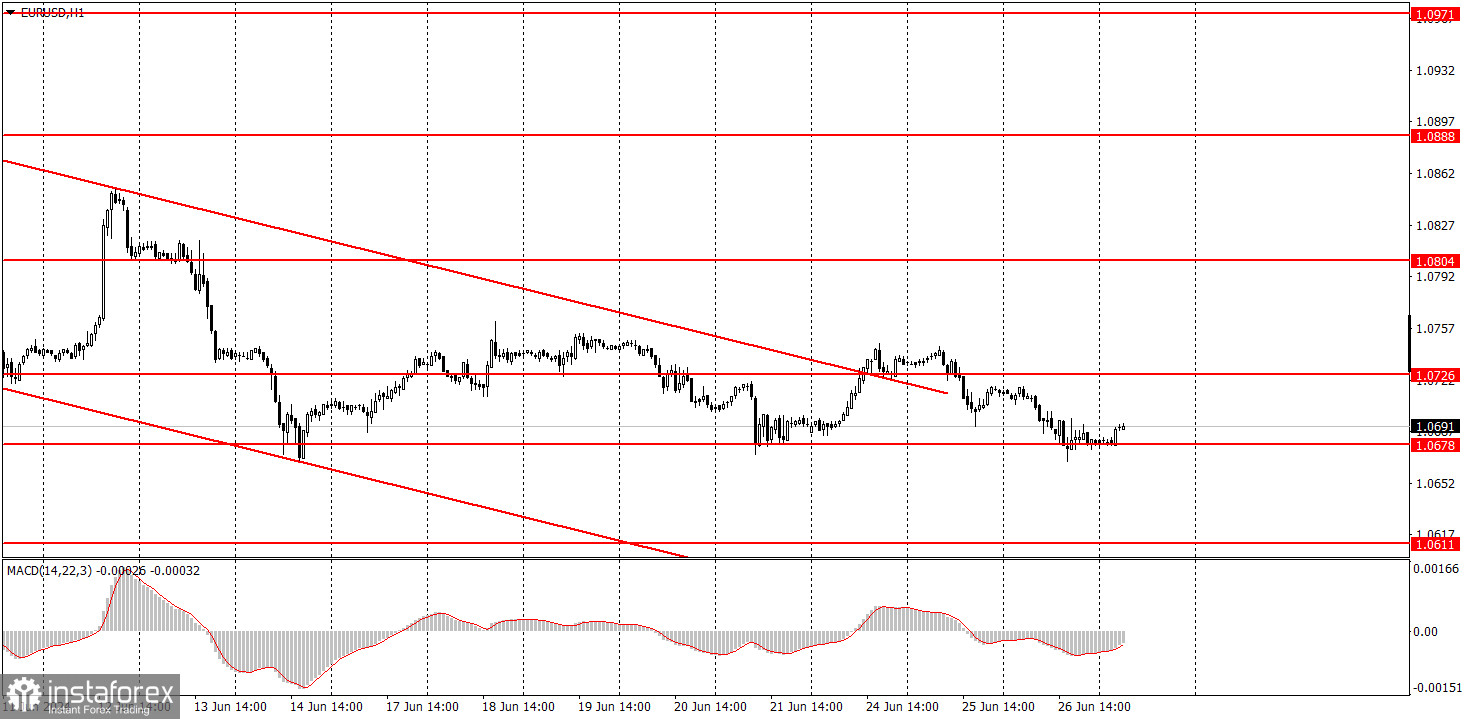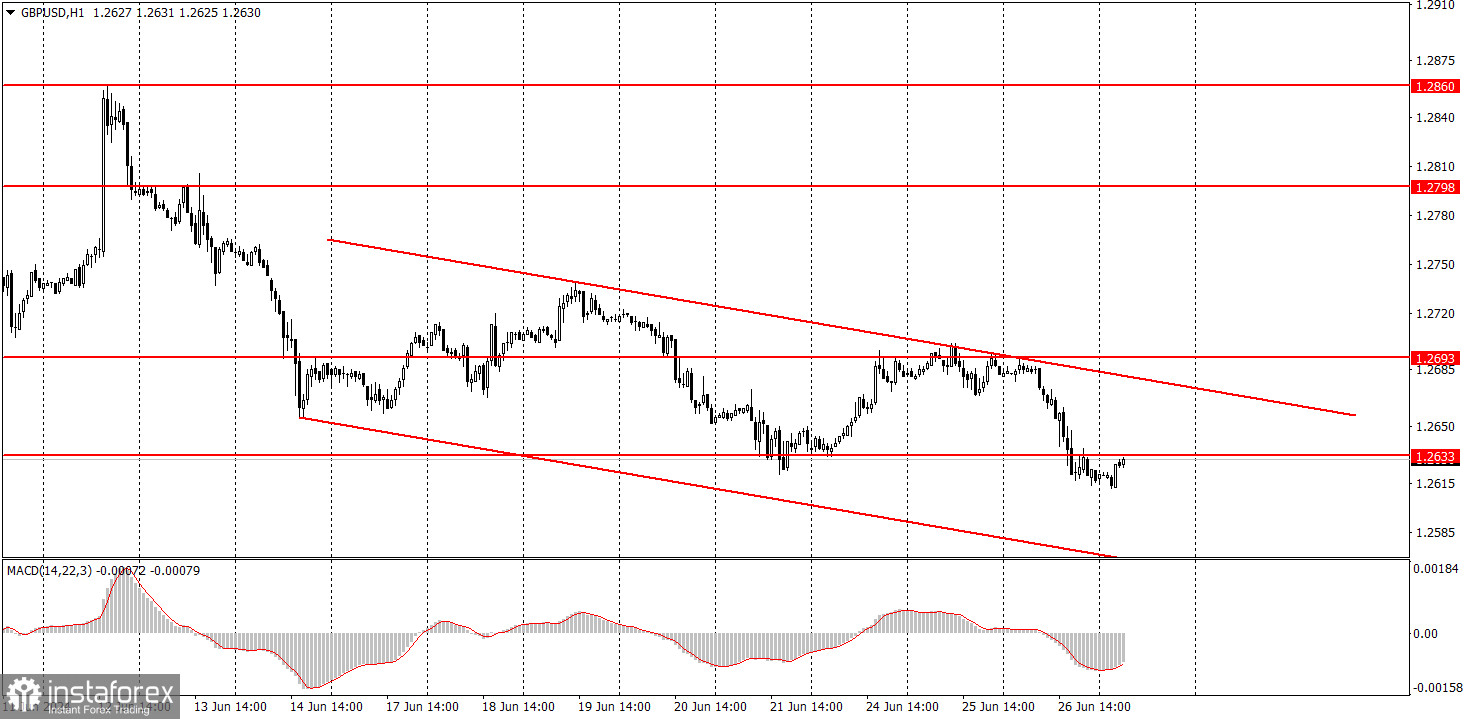Analysis of macroeconomic reports:

Several macroeconomic events are scheduled for Thursday, which includes some relatively important reports. The economic calendars of Germany, the United Kingdom, and the European Union are relatively light. However, at least one might pay attention to the final assessment of the U.S. GDP numbers for Q1 and the durable goods orders report. In fact, these are quite important reports, although earlier this week we said that traders shouldn't expect a strong market reaction to them. However, this week, there hasn't been any report that has sparked some interest. Therefore, even these reports could lead to significant movements during the U.S. trading session simply because there are no other major catalysts.
Analysis of fundamental events:

Among the fundamental events of Thursday, we can only highlight European Central Bank official Frank Elderson's speech, but it's clear that this event will not generate any interest. Market participants already know what to expect from the ECB in the coming months, and we have already listened to many representatives of the ECB monetary committee. They have all been saying more or less the same things – the rate could be lowered a second time in September, and there could be three rate cuts of 0.25% each by the end of the year.
General conclusion:
Today, we can expect slightly stronger movements compared to the first three days of the week. The U.S. will release several reports, and investors may react to their values. The movements of both currency pairs may entirely depend on these reports.
Basic rules of a trading system:
1) Signal strength is determined by the time taken for its formation (either a bounce or level breach). A shorter formation time indicates a stronger signal.
2) If two or more trades around a certain level are initiated based on false signals, subsequent signals from that level should be disregarded.
3) In a flat market, any currency pair can produce multiple false signals or none at all. In any case, the flat trend is not the best condition for trading.
4) Trading activities are confined between the onset of the European session and mid-way through the U.S. session, after which all open trades should be manually closed.
5) On the 30-minute timeframe, trades based on MACD signals are only advisable amidst substantial volatility and an established trend, confirmed either by a trendline or trend channel.
6) If two levels lie closely together (ranging from 5 to 15 pips apart), they should be considered as a support or resistance zone.
How to read charts:
Support and Resistance price levels can serve as targets when buying or selling. You can place Take Profit levels near them.
Red lines represent channels or trend lines, depicting the current market trend and indicating the preferable trading direction.
The MACD(14,22,3) indicator, encompassing both the histogram and signal line, acts as an auxiliary tool and can also be used as a signal source.
Significant speeches and reports (always noted in the news calendar) can profoundly influence the price dynamics. Hence, trading during their release calls for heightened caution. It may be reasonable to exit the market to prevent abrupt price reversals against the prevailing trend.
Beginners should always remember that not every trade will yield profit. Establishing a clear strategy coupled with sound money management is the cornerstone of sustained trading success.
 English
English 
 Русский
Русский Bahasa Indonesia
Bahasa Indonesia Bahasa Malay
Bahasa Malay ไทย
ไทย Español
Español Deutsch
Deutsch Български
Български Français
Français Tiếng Việt
Tiếng Việt 中文
中文 বাংলা
বাংলা हिन्दी
हिन्दी Čeština
Čeština Українська
Українська Română
Română

